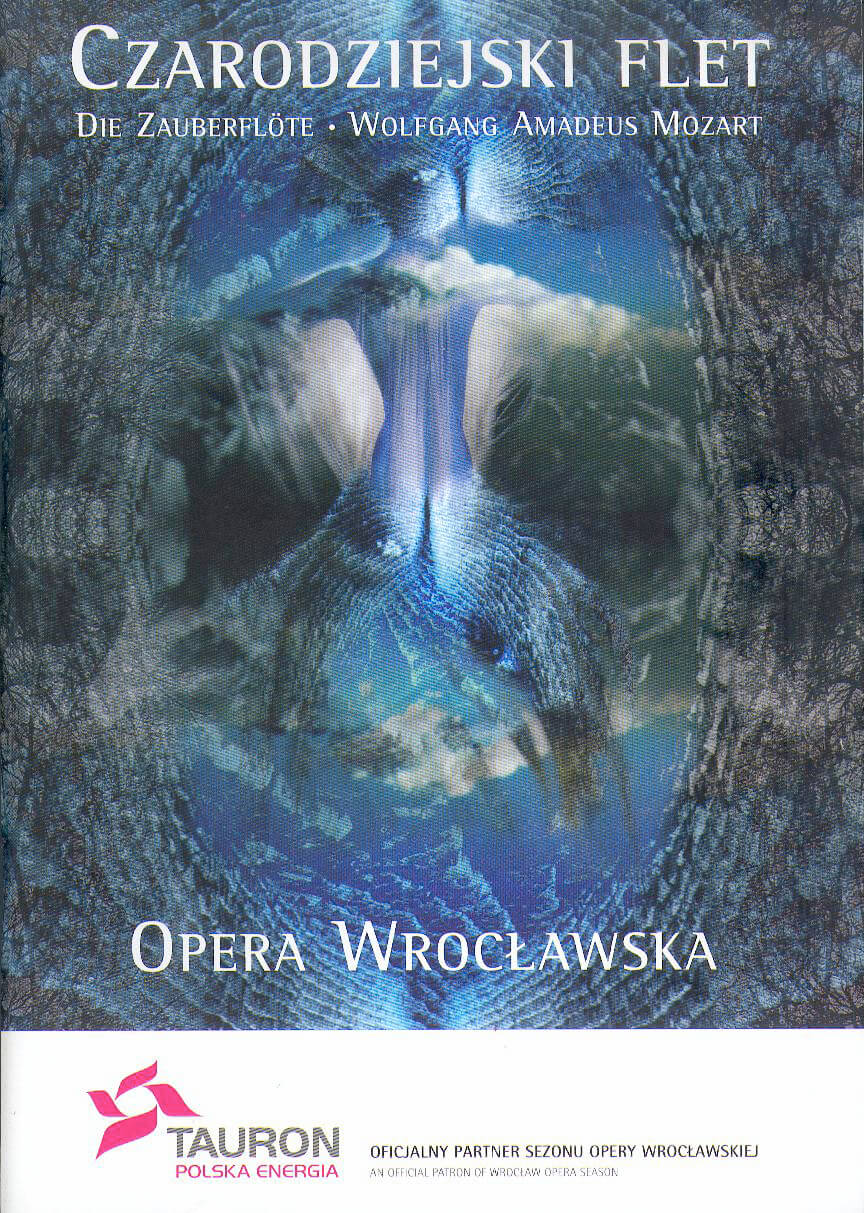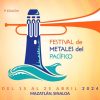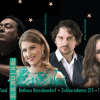Magic Flute
Komponist: Wolfgang Amadeus Mozart
Hauptakteure: Dariusz Mikulski (Music Director / Producer), Anna Długołęcka (Director, set design), Orchestra, Chorus and Ballet of the Wrocław Opera House
The vision of the opera created by Anna Długołęcka retains its simply fabulous perspective – the artist created both uniquely beautiful costumes and stage images using the latest 3D technology.
In cooperation with the musical director of the show, prof. Dariusz Mikulski, an excellent interpreter of the music of W.A. Mozart created a timeless work of global scope. The artists of the Wrocław Opera fulfilled the artistic assumptions of the show’s creators with their creativity and performance level.
Magic Flute
Komponist: Wolfgang Amadeus Mozart
Hauptakteure: Dariusz Mikulski (Music Direction / Producer), Anna Długołęcka (Stage / Direction), Solists and ballet of the Poznań Opera House, Orchestra of the Filharmonia Sudecka
The Magic Flute (German: Die Zauberflöte), KV. 620, is aa opera in two acts by Wolgang Amadeus Mozart to a German libretto by Emanuel Schickaneder. The work is in the form of a Singspiel – a popular form during the time it was written that included both singing and spoken dialogue. The work premiered on 30 September 1791 at Schikaneder’s theatre, the Freihaus-theater auf der Wieden in Vienna, just two months before the composer’s premature death.
La Traviata
Komponist: Giuseppe Verdi
Hauptakteure: Dariusz Mikulski (Music Direktor / Producer), Anna Długołęcka (Director), Joanna Horodko (Violetta Valéry), Tomasz Janczak (Alfredo Germont)
La traviata (Italian for “The one who has lost her way”) is an opera by Giuseppe Verdi (music) and Francesco Maria Piave (libretto) based on the novel “La dame aux camelias” (1848) by the author Alexandre Dumas the Younger in February 1852 also brought to the stage as a play. The opera was premiered on March 6, 1853 in the Teatro La Fenice in Venice and initially fell through with the audience before being revised to become one of the most successful operas in music history.
El Greco
Komponist: George Hatzinassios
Hauptakteure: Dariusz Mikulski (Music Director / Producer), Vassilis Anastasiou (Director), Elias Liamis (Libretto)
A new opera by the famous greek composer George Hatzinassios. The opera “El Greco” is suggesting a research through out the great painter’s life and the truth he meant to offer with his own art. From Crete to Italy and then to Spain, the great Greek painter seems to be -beside his challenging the visual arts – in the research of a constant theme, that could be his re-union with the spirit of Creation and God. This work, reminding the first Christian Churche’s ideals, becomes the meeting point of different religious art styles, while his use of color seems a bridge among the two great Christian traditions, of East and West.
Aida
Komponist: Giuseppe Verdi
Hauptakteure: Dariusz Mikulski (Music Director / Producer), Zamira Pasceri (Director), Anthanasios Kolalas – (set design / costumes), Municipal Orchestra & Moysa Orchestra Thessaloniki
Aida is an opera in four acts by Giuseppe Verdi based on a libreto by Antonio Ghislanzoni based on a scenario by the Egyptologist Auguste Mariette. The premiere took place on December 24, 1871 in the Khadivial Opera House in Cairo.
The opera is set in Egypt at the time of the pharaohs. The title character Aida is an Ethiopian king’s daughter who was kidnapped to Egypt as a hostage. The Egyptian general Radamès has to choose between his love for Aida and his loyalty to the pharaoh or marrying Amneris, the pharaoh’s daughter.
Magic Flute
Komponist: Wolfgang Amadeus Mozart
Hauptakteure: Dariusz Mikulski (Music Director / Producer), Richard Ralphs (Director)
The Magic Flute (German: Die Zauberflöte), KV. 620, is aa opera in two acts by Wolgang Amadeus Mozart to a German libretto by Emanuel Schickaneder. The work is in the form of a Singspiel – a popular form during the time it was written that included both singing and spoken dialogue. The work premiered on 30 September 1791 at Schikaneder’s theatre, the Freihaus-theater auf der Wieden in Vienna, just two months before the composer’s premature death.
Tosca
Komponist: Giacomo Puccini
Hauptakteure: Dariusz Mikulski (Music Director / Producer), Anna Długołęcka (Director), Barbara Kubiak (Floria Tosca), Sylwester Kostecki (Maria Cavaradossi)
The Waldenburg Tosca production plays the dramaturgy in the Evangelical Church. Anna Długołęcka – the director uses the historical ambience of the church to present the dramaturgical background of the opera as precisely as possible. She also uses the energy and potential of younger generations and numerous extras to possibly bring the opera closer to the audience. In addition, the live cameras and screens ensure that everyone who came to see all the details of the action up close. The orchestra of the Filharmonia Sudecka under the direction of Dariusz Mikulski plays precisely and very dynamically. The main actors – Barbara Kubiak (Tosca) and Sylwester Kostecki (Cavaradossi) provided the highest dramaturgical and vocal level. All together made the production an unforgettable event.
Traviata (Berlin)
Komponist: Giuseppe Verdi
Hauptakteure: Dariusz Mikulski (Music Director / Producer), Anna Długołęcka (Director), Joanna Horodko (Violetta Valery), Tomasz Janczak (Alfredo Germont), Aleksandra Gudzio (Flora Bervoix)
La traviata (Italian for “The one who has lost her way”) is an opera by Giuseppe Verdi (music) and Francesco Maria Piave (libretto) based on the novel “La dame aux camelias” (1848) by the author Alexandre Dumas the Younger in February 1852 also brought to the stage as a play. The opera was premiered on March 6, 1853 in the Teatro La Fenice in Venice and initially fell through with the audience before being revised to become one of the most successful operas in music history.
As before in “Rigoletto” and “Il trovatore”, Verdi placed a person who was ostracized and rejected by society at the center of the action. An opera about a courtesan dying of tuberculosis was unprecedented for the time.
The Haunted Manor
Komponist: Stanisław Moniuszko
Hauptakteure: Dariusz Mikulski (Music Director / Producer), Natalia Puczniewska (Hanna), Magdalena Wilczyńska-Goś (Jadwiga), Karol Bochański (Stefan)
The Haunted Manor (Polish: Straszny dwór) is an opera in four acts composed by Polish composer Stanisław Moniuszko in 1861–1864. The libretto was written by Jan Chęciński. Despite being a romance and a comedy, it has strong Polish patriotic undertones, which made it both popular with the Polish public and unpopular – to the point of being banned – by the Russian authorities of Congress Poland. The story represents both an idyllic view of life in a Polish country manor house, and at the same time an idealistic preoccupation with the patriotic duties of the soldier, the military virtues of courage, bravery, and readiness to take up arms against any enemy of the nation, and the importance of family honor.
Fiddler on the roof
Komponist: Jerry Bock
Hauptakteure: Dariusz Mikulski (Music Director / Producer),
Fiddler on the Roof is a musical with music by Jery Bock, lyrics by Sheldon Hernick and book by Joseph Stein, set in the Pale of Settlement of Imperial Russia in or around 1905. It is based on Tevye and his Daughters (or Tevye the Dairyman) and other tales by Sholem Aleichem. The story centers on Tevye, a milkman in the village of Anatevka, who attempts to maintain his Jewish religious and cultural traditions as outside influences encroach upon his family’s lives. He must cope with the strong-willed actions of his three older daughters who wish to marry for love; their choices of husbands are successively less palatable for Tevye. An edict of the tsar eventually evicts the Jews from their village.
Magic Flute Łódź
Komponist: Jerry Bock
Hauptakteure: Dariusz Mikulski (Music Director / Producer),
Fiddler on the Roof is a musical with music by Jery Bock, lyrics by Sheldon Hernick and book by Joseph Stein, set in the Pale of Settlement of Imperial Russia in or around 1905. It is based on Tevye and his Daughters (or Tevye the Dairyman) and other tales by Sholem Aleichem. The story centers on Tevye, a milkman in the village of Anatevka, who attempts to maintain his Jewish religious and cultural traditions as outside influences encroach upon his family’s lives. He must cope with the strong-willed actions of his three older daughters who wish to marry for love; their choices of husbands are successively less palatable for Tevye. An edict of the tsar eventually evicts the Jews from their village.



















